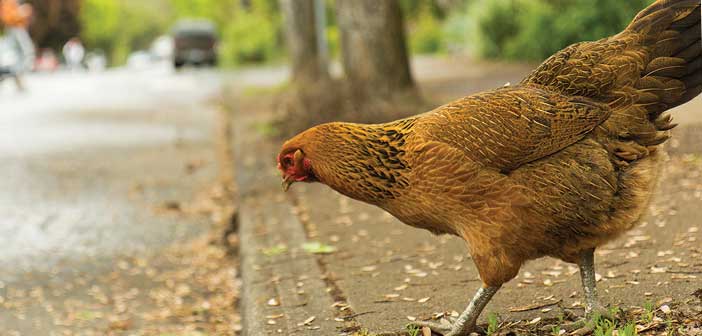PROVIDENCE BAY—He may be out, but he is not quite down. The appeal of a decision dismissing small flock chicken producer Glenn Black’s challenge of the 300 chicken limit placed on farmers without chicken quota under a supply management system may have been disallowed, but the local food advocate said he is currently assessing the situation and pleased about the decision’s vindication of his appeal as not being frivolous, vexatious or being made in bad faith.
But when it comes to moving forward with any further legal action, Mr. Black has hit a bit of a personal Rubicon. To move forward with a request for a judicial review would leave Mr. Black open to some very substantial legal costs. “It has become very risky on a personal basis,” he said. “It could easily cost anywhere from $5,000 to $50,000 to seek a judicial review overturning the decision.”
On an even more personal level, Mr. Black noted that the battle has taken its toll on another front. “My wife has been extremely patient,” he said. The research that has gone into the battle has been extensive, if not all-consuming, and he cited the need to focus on supporting his own family.
“There are possibilities that we are exploring,” he said of continuing the battle against the limits being placed on small flock farmers. “Crowd sourcing is one avenue,” Mr. Black points out, while another is the possibility of the courts ruling that the case is of sufficient public interest to all for it to go forward while shielding him from the possibility of being assessed for the other side’s costs. “I do my own representation,” he noted as to the costs on his own side. “It has taken up a lot of time,” he admits. “I don’t claim to be even a two-bit lawyer, but I have learned a great deal through this process.”
He also looks to the upcoming provincial by-election in Sudbury as an opportunity to bring the issue more into the public spotlight. Although the NDP position on supply management is that they support it, Mr. Black said that he hoped that party would take on the issue of the 300-bird limit on small flock producers.
Mr. Black’s stated motivation in pursuing his battle against the quota limits is one of simple fairness and common sense, he said. “People have the right to be able to feed themselves and if people want to be able to choose to buy their food locally they should have that opportunity.” In order to be viable economically, small flock limits have to rise to around at least 2,000 birds. “That would be a starting point,” he said.
At that level, Mr. Black suggests the existing 15,500 small flock operators would comprise just 10 percent of the market. “It is a question of democratic rights too, we are supposed to be a democracy where the majority rules while protecting the interests of the minority,” he suggested. “That is why I call it a chicken apartheid, there are 1,400 large producers who the market benefits. That is a 10 to one ratio where the minority is dictating to the majority.”
The small flock operator noted that he has had some supportive conversations with local First Nation leaders. “The small flock option could provide a good economic opportunity for small remote communities,” he said. “The chiefs are aware of that opportunity.”
For now, however, Mr. Black is going to turn his attention to a new project. He has taken on the position of general manager of the Manitoulin Hotel and Conference Centre.




